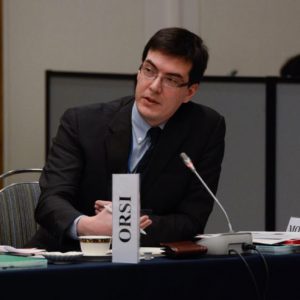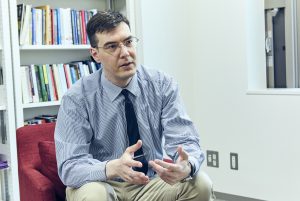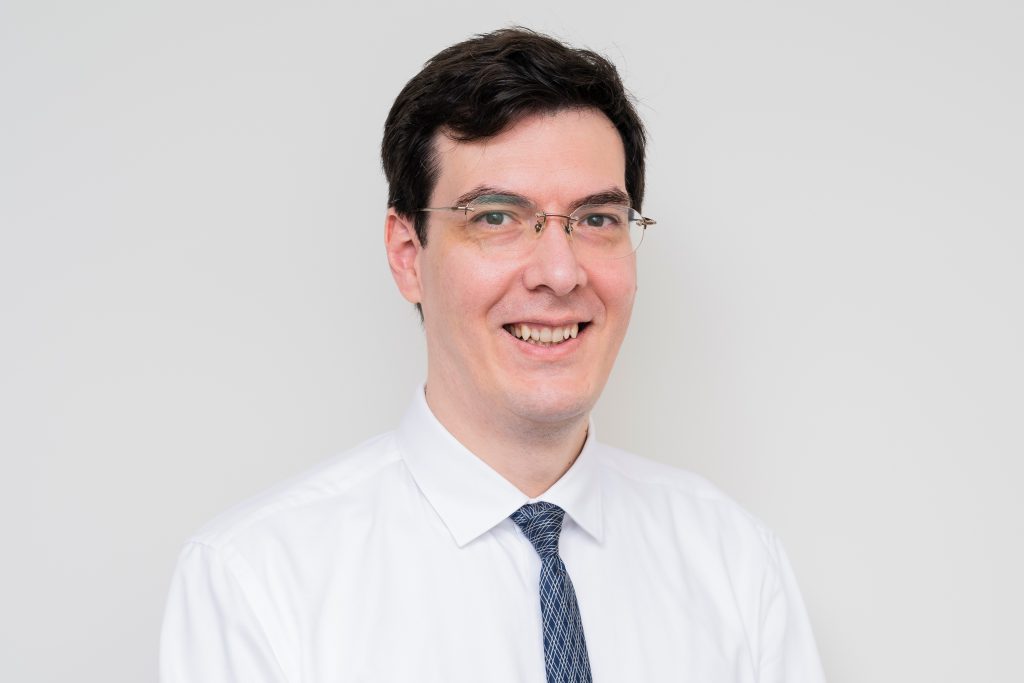My main research interest is in the theory of international politics and the development of theoretical perspectives for studying and thinking about international political events. I am especially interested in the history of political concepts applied to international politics, such as democracy, human rights, just war, or neutrality. Studying their history fosters a better understanding of their origins, how they have been applied, their shortcomings, and the differences today. It can also inspire new concepts for solving problems that we face now and in the future.
Before coming to Japan, I was based in Europe. I grew up in a small town in Northern Italy and studied law at the University of Turin. After graduation, I moved to Hamburg (Germany) to work at an international law firm. Although I remember that time fondly, I soon realized that it was not my ideal professional path. I then shifted my career and eventually completed a PhD in International Relations at the London School of Economics. In the meantime, through various friends and acquaintances, I developed an interest in Japan and eventually found a position at the University of Tokyo in 2013. At first, I worked at the Policy Alternatives Research Institute (now the Institute for Future Initiatives). Over time, I started to teach a number of courses at GraSPP, and joined its faculty.

My main research interest is the theory of international politics. This field deals with those ideas that allow us to think about international politics. When considering international political events, we apply ideas to filter out what is important/unimportant or interesting/uninteresting. There are different angles from which we can study international politics, for instance by looking at diplomatic and other official documents, or at how people organise their everyday lives, or at how women or minorities are treated, or at how resources are distributed and used in an economy. We therefore need different theoretical perspectives to allow the construction of coherent narratives.
I study and develop such theoretical perspectives, being especially interested in the history of political concepts applied to international politics. Concepts such as democracy, human rights, just war, or neutrality, all have a history. They come from someone and somewhere. Studying that history fosters a better understanding of their origins, how they have been applied, their shortcomings, and what difference they can make for us today. It can also inspire new concepts to solve problems that we face in the present and possibly in the future.
Currently, I believe that we, both as academics and as citizens of the world, need a better understanding of the new (dis)orders that are rapidly emerging from the landscape of the post-Cold War world which revolved around a practically unchallenged US global hegemony. We appear to be severely underequipped to grasp the paths opened to the world because of this transition, and I am doing my share to produce better theoretical lenses. My take is also that much will depend in the coming decade(s) on the domestic political and social crisis in the United States.

Besides my research, I teach several courses, including Introduction to International Politics, Ethics and International Relations, and Introduction to Social Science. In addition, I am coordinating the GraSPP Policy Challenge, in which students form groups and come up with competing policy proposals, with the winners going on to make their proposals at the Global Public Policy Network (GPPN) annual conference. Together with Professor Hisashi Yoshikawa I co-coordinate the International Organizations for Sustainable Development in the 21th Century course, where speakers from various IOs directly interact with our students, gaining invaluable insights about the functioning of such institutions and the most practical aspects of international work and career development.
Indeed, GraSPP is a very practically and internationally oriented school. We aim to prepare public policy practitioners by imparting practical knowledge and skills. At the same time, many of our students already have significant practical experience, as they work as bureaucrats or diplomats, in which case our didactical goals re-adjust towards the fostering of sound theoretical foundations for a deeper understanding of the various public policy problems and for a more efficient envisaging of solutions. After all, there is no action without some implicit or explicit theoretical insight about the world, and vice versa. At GraSPP, opportunities to meet with actual practitioners from around the world are plenty, mainly thanks to the extensive networks of our professors, many of whom are former diplomats or government officials. I think GraSPP is perfect for practically-minded students looking to take the plunge into the world of international organizations, bureaucracy, diplomacy, and the like.



